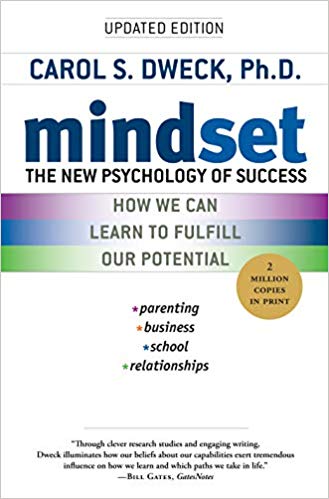

This article is an excerpt from the Shortform summary of "Mindset" by Carol Dweck. Shortform has the world's best summaries of books you should be reading.
Like this article? Sign up for a free trial here .
What are the most common relationship myths? How does believing in them hurt you and your relationships?
We’ll cover the most common relationship myths and discuss why people who believe them often have a fixed mindset.
The Most Common Relationship Myths
Because having a fixed mindset means you believe traits are set in stone, you have several beliefs about your relationship:
- Your traits are fixed and unchangeable.
- Your partner’s traits are unchangeable.
- Your relationship is unchangeable: it was either meant to be or not to be. If it was meant to be, you’ll live in perfect harmony, happily ever after.
If you have a growth mindset, you believe the opposite — that you, your partner, and your relationship can grow.
Of course, everyone wants to believe their relationship is unique and special. There’s nothing wrong with that — if you avoid the following pitfalls and myths of fixed-mindset thinking. The following are some of the most common relationship myths, often believed by people with a fixed mindset.
Relationship Myth #1: It’s Magic
People with fixed mindsets believe that if two people are right for each other, their relationship should always be smooth sailing. Compatibility means everything should come naturally and you shouldn’t have to work on your relationship. If you have troubles, then the relationship wasn’t meant to be. (Relationship experts say this is one of the most harmful relationship myths.)
In contrast, the growth-minded view is that they’ll work together to learn relationship skills, solve problems, and grow. Success comes from work and commitment, not magic.
Relationship Myth #2: You Both Can Read Minds
People with fixed mindsets believe partners should be so in sync that they can read each other’s minds. Of course, this is a relationship myth. You need to communicate, not try to read minds. It’s easy to misinterpret what the other person says or means.
For instance, when the author’s partner asked for more space, she thought he was talking about changing or ending the relationship. But he only wanted more room where they were sitting.
Relationship Myth #3: You Should Agree on Everything
In addition to mind-reading, many fixed-mindset people believe two people in a relationship should have the same views about everything. A study showed how this works. Researchers asked couples to discuss their views of the relationship. People with fixed mindsets felt threatened and irritated when even tiny discrepancies in how they each saw the relationship came to light.
However, it’s impossible to share the same beliefs and assumptions about everything. That’s why this is a common relationship myth. It takes effort to communicate honestly and accurately, to understand each other’s views, and to resolve conflicts. You can live “happily ever after,” but it takes work.
Relationship Myth #4: Problems Equal Character Flaws
Those with fixed mindsets see problems as a sign of a character flaw. When conflicts occur, they look for something to blame — often their partner’s personality. They can become angry and disgusted with their partner, an attitude they extend to the whole relationship. Since they believe traits are set in stone, the problem is unsolvable. Or, to avoid believing the relationship can’t be fixed, they may deny problems instead. Consequently, this is a particularly harmful relationship myth.
Some people keep dating one person after another because they’re trying to find the perfect person. For instance, one woman from the study, Penelope, dated a string of men but always broke up when she discovered what she considered to be a flaw, such as watching too much television. These flaws were small things that could have been addressed with tolerance or communication, but she preferred to move on because she believed there was someone out there who was already perfect.
Everyone has flaws or things that look like flaws to us. Problems are normal occurrences in relationships. Growth-minded people accept flaws — they believe a person or relationship can still be good without being perfect. They also believe people can grow.
For example, after a special prosecutor uncovered Bill Clinton’s relationship with an intern, which he had lied about to his wife, Hillary Clinton had to decide whether his lying was a fixed trait or whether he could improve with help and commitment. She believed he could change and they went to counseling one full day a week for a year.
Relationship Myth #5: Your Partner Is Your Competitor
In a fixed mindset where you have to keep proving yourself, it’s easy to get into a competition with your partner over who’s more talented or intelligent. Here’s an extreme example: Cynthia always felt competitive and had to outdo her partners in the areas most important to them. For instance, when she developed a relationship with an actor, she started writing successful plays. These actions chased the men away. She didn’t allow them to have their own identity. She said she was just showing interest in their interests, but in reality, she needed to equal or surpass them at everything.
———End of Preview———

Like what you just read? Read the rest of the world's best summary of "Mindset" at Shortform . Learn the book's critical concepts in 20 minutes or less .
Here's what you'll find in our full Mindset summary :
- The difference between a growth and a fixed mindset
- How a fixed mindset keeps you back throughout your life: education, relationships, and career
- The 7 key ways to build a growth mindset for yourself






